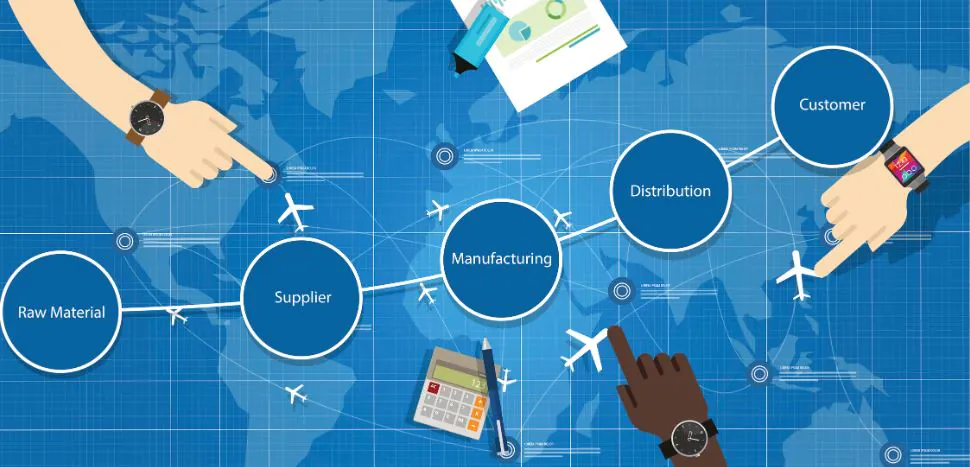What is the Retail Trade Industry?
What is the retail trade industry? In simplest terms, goods are sold to the final consumer and the business activity associated with it is considered part of the retail trade cycle. Retailers satisfy demand identified through an often global supply chain — that process is a part of retail trade. The cycle includes the link between producers, suppliers, manufacturers, wholesalers to the end consumers — or the final customers of the goods. Typical retailers then sell goods to end-users in smaller quantities. By that process, we are moving away from a B2B-level retail trade scenario and into a traditional retail trade one.
There are multiple channels in the retail trade process including logistics, facilitation and the transaction process; all of this involves dozens of steps and its good to get the right education on these steps before venturing out on new B2B trade scenarios with global retail trade companies and associations.
This fact sheet is for B2B buyers and sellers interested in gaining insights into the global retail trades industry; specifically the following:
- What are the most important global retail trade industry trends in 2020?
- Which retail trade associations can help answer vital questions regarding your B2B needs?
- Important statistics of the retail trade sector in 2020.
- Understand the price-to-earnings ratio of the retail trade sector and its segments.
- Understand both the B2B and end-consumer retail trade scenarios.
BizVibe is already helping the top companies interested in the retail trade industry connect. Connect with these companies to understand more about the industry today.
Global Retail Trade Industry Trends and Statistics 2020
- According to the U.S. Census Bureau, USA retail sales rose 0.3% in January 2020.
- Year-over-year retail sales were up 4.4%.
- Increased consumer spending was the major driving factor for growth in retail trade.
- In 2018, retail sales hit $3.68 trillion — a record number.
- Amazon Go is the world’s largest brick-and-mortar service; leading the way for a shift towards the global online transition into retail buying and selling.
- 3D printing is changing the production aspect of the retail trade process.
- Off-price retailers are booming at the expense of department stores.
- 20% of yearly retail sales occur during the holiday season.
- The average P/E ratio of the retail sector is 20.54.
- Building supply retail companies have an average P/E ratio of 27.48.
- Grocery and food retail companies have an average P/E ratio of 12.67.
Must Read: Top Clothing Retailers in the World in 2020
Business Types in the Retail Trade Industry?
There are many types of businesses operating in the global retail trade industry including:
- Consumer packaged goods
- Electrical and electronic goods
- Floor covering
- Food and grocery
- Fuel
- Furniture and housewares
- Hardware
- Building and garden supplies
- Motor vehicles and parts
- Personal accessories
- Pharmaceutical
- Recreational goods
- Textiles
- Clothing and footwear
Top Trade Associations in the Retail Trade Industry
Trade associations are your best source for finding specific information about various aspects of the retail industry, including questions about the buying and selling process; global trade strengths and weaknesses; trade scenarios; market trends, and more. Whether your questions surround buying and selling at a B2B level or something specific about global trade or the domestic market, we suggest reaching out to trade associations in your sector first. Reachin out to associations is one of the best places to start.
The following are the top retail trade associations that you can reach out to now to have your questions answered.
Consumer Brands Association
Labeled as the trusted voice of consumer packaged goods, the Consumer Brands Association is there to educate and help with the impact of the CPG industry, regulations you should know about, sustainably practices, questions about the supply chain in the CPG sector, and how you can build trust in the sector
National Association of Chain Drug Stores
NACDS is there to advance and educate on pro-patient and pro-pharmacy initiatives. The mission of NACDS is to advance the interests and objectives of the chain community pharmacy industry, by fostering its growth and promoting its role as a provider of healthcare services and consumer products.
NACS: The Association for Convenience and Fuels Retailing
NACS operates to serve the global convenience and fuel retailing industry by providing industry knowledge, connections, and advocacy to ensure the competitive viability of its members’ businesses. NACS has 2,100 retailers and 1,750 supplier members from more than 50 countries and is a member-driven organization, led by a 32-member Board of Directors.
There are more than 1 million convenience stores across the globe. In the United States alone, there are 152,720 convenience stores, which conduct 165 million transactions a day and have annual sales of $654 billion
There are dozens of more associations from the retail traded industry. Check them out on BizVibe today to get your pressing questions answered directly from the experts.
The Future of the Global Retail Trade Industry
Looking past 2020, the future of the global retail trade industry looks promising as leaders are innovation and technology is making us more connected than ever before. The suppl,y chain is changing more than anything and we’re seeing a more efficient and end-user focused strategy to drive sustainable success going forward.



